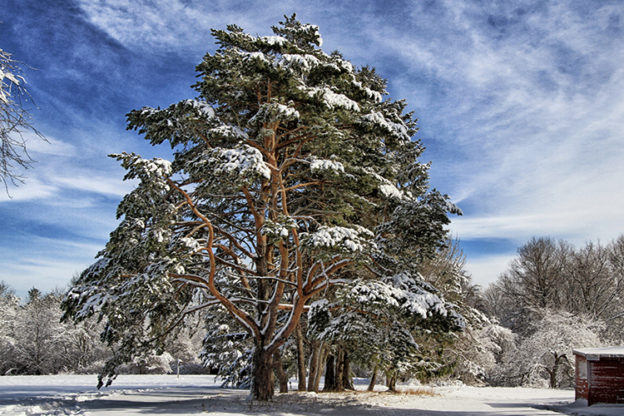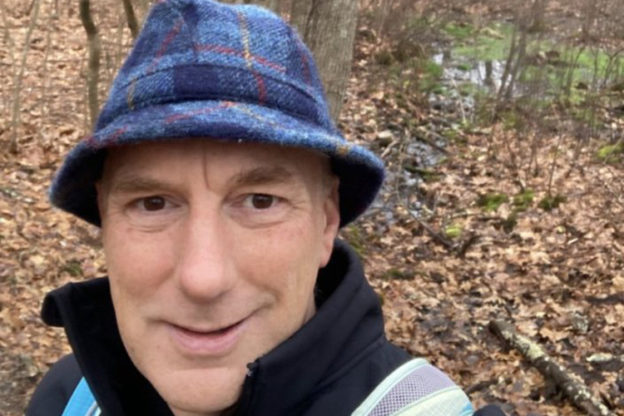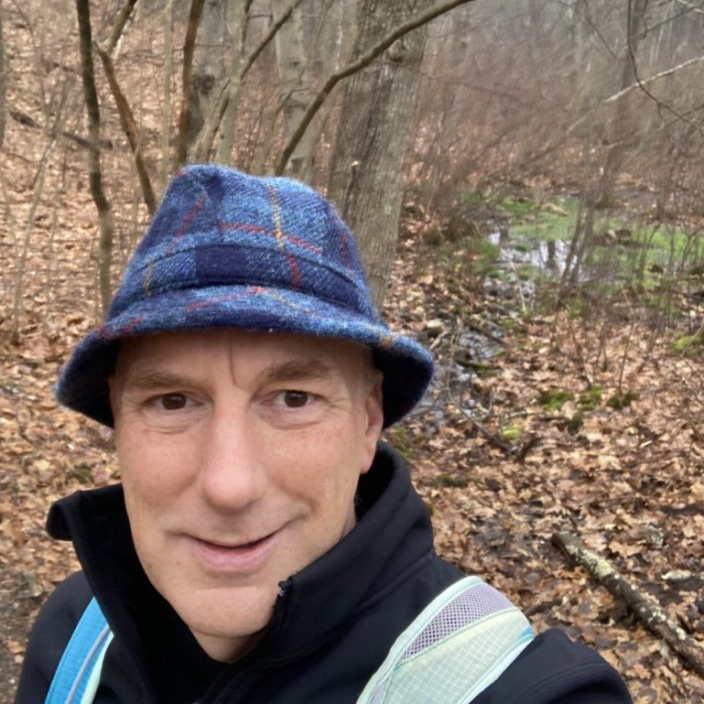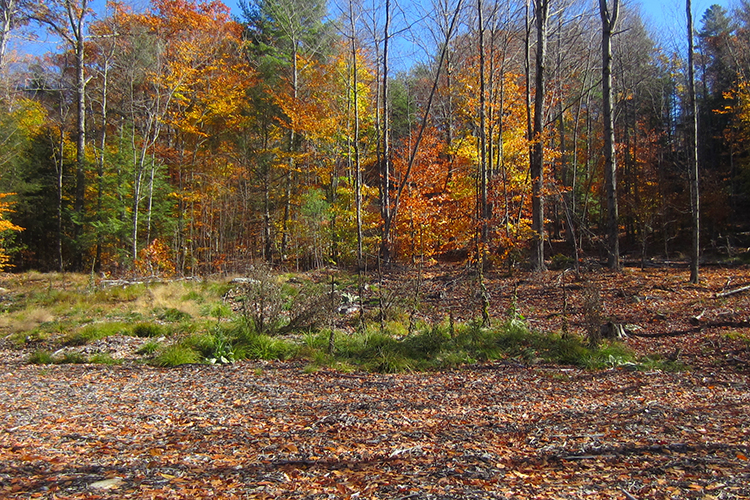
The end of 2022 was busy for our land conservation team, who put the finishing touches on protecting over 400 acres.
This volume of projects reflects the strong commitment to land conservation that is articulated in Mass Audubon’s Action Agenda, which calls for accelerated land protection activity both for land acquired as part of Mass Audubon’s sanctuary system, as well as projects assisted by our staff that yield land that may be owned by other land trusts, state agencies, or local cities and towns.
Here are just a few of those projects.
Cold Brook, Otis
At Cold Brook, Land Protection Specialist Kate Buttolph completed the purchase of 180 acres of land in Otis and Sandisfield from the estate of Robert Minery. During his lifetime, Mr. Minery had worked with Mass Audubon on an initial acquisition of 58 acres of his land at Cold Brook; with the recent transaction we have now been able to significantly expand Mass Audubon’s ownership to include high priority land on both sides of the Cold Spring Road corridor.
This was a complex, multi-year transaction that required persistence, patience, and commitment; congratulations to Kate and the other members of the project team at Mass Audubon, and to our project partners at the Massachusetts Department of Conservation and Recreation (DCR) on its completion after many years of work, and thanks to the generous private funders that made the project possible.
The Cold Brook property is not yet open to the public; site restoration activities are underway and the infrastructure necessary for public visitation will be constructed.
Ipswich River, Topsfield
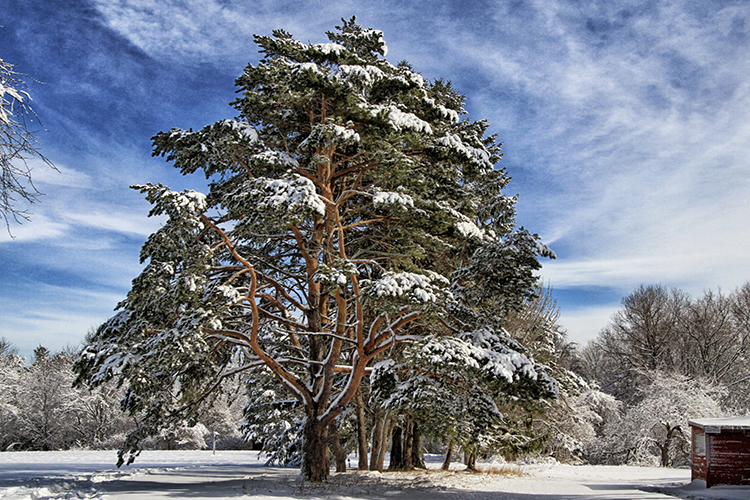
At Ipswich River Wildlife Sanctuary, by contrast, the land conservation team was able to mobilize in a very short period of time to accept a donation of land from a donor who wanted to complete his gift by the end of the calendar year. Land Protection Specialist Andrew Ognibene coordinated the internal review process and the legal and title work required to accommodate the donor’s desired timeframe and we accepted the gift on December 14, with two weeks to spare!
The land added to the sanctuary expands the base of protected land at Ipswich River, and protects high value wildlife habitat designated as Core Habitat in the newly-updated BioMap analysis by the state Natural Heritage and Endangered Species Program.
Whetstone Wood, Wendell
Whetstone Wood, Mass Audubon’s largest sanctuary, gained an additional 106 acres through two transactions coordinated by Land Protection Specialists Nick Rossi and Kate Buttolph.
In addition to adding five acres to our ownership at Whetstone Wood, the Leppzer purchase also included a restoration component. We already removed existing structures and will taker further measures to restore the site, allowing the creation of young forest habitat through natural succession, supporting the recovery of the New England Cottontail, New England’s only native rabbit.
The purchase of the Killay property, in partnership with DCR, expands Mass Audubon’s base of protected land in Wendell to the south and links state water supply land with Wendell State Forest, enhancing the resiliency of this critical forested landscape.
Whetstone Wood is unusual for Mass Audubon because public access is quite limited. It was the vision of the original donors and founders of the sanctuary, Ina and Mason Phelps, to create a wildlife refuge where human impacts are deliberately kept to a minimum.
Eagle Lake, Holden
A bequest by the estate of Edna Tilander added 31 acres of land to the Eagle Lake Wildlife Sanctuary in Holden. Ms. Tilander worked with Mass Audubon staff during her lifetime to structure her gift, which was then incorporated into her estate plan. The Tilander property supports two valuable cold-water streams and creates a robust protected link between the Eagle Lake property to the north and thousands of acres of protected land to the south.
In addition to providing for the gift to Mass Audubon, Ms. Tilander’s will also specified that her house be left to her niece. Nick Rossi worked closely with the estate to complete the subdivision process and allow the separate conveyance of the house. The Tilander project is a compelling example of the power of planned giving to accomplish multiple goals as specified by the donor.
Get Involved
You can help support efforts to conserve even more resilient landscapes across Massachusetts by supporting our work. Find out how >


